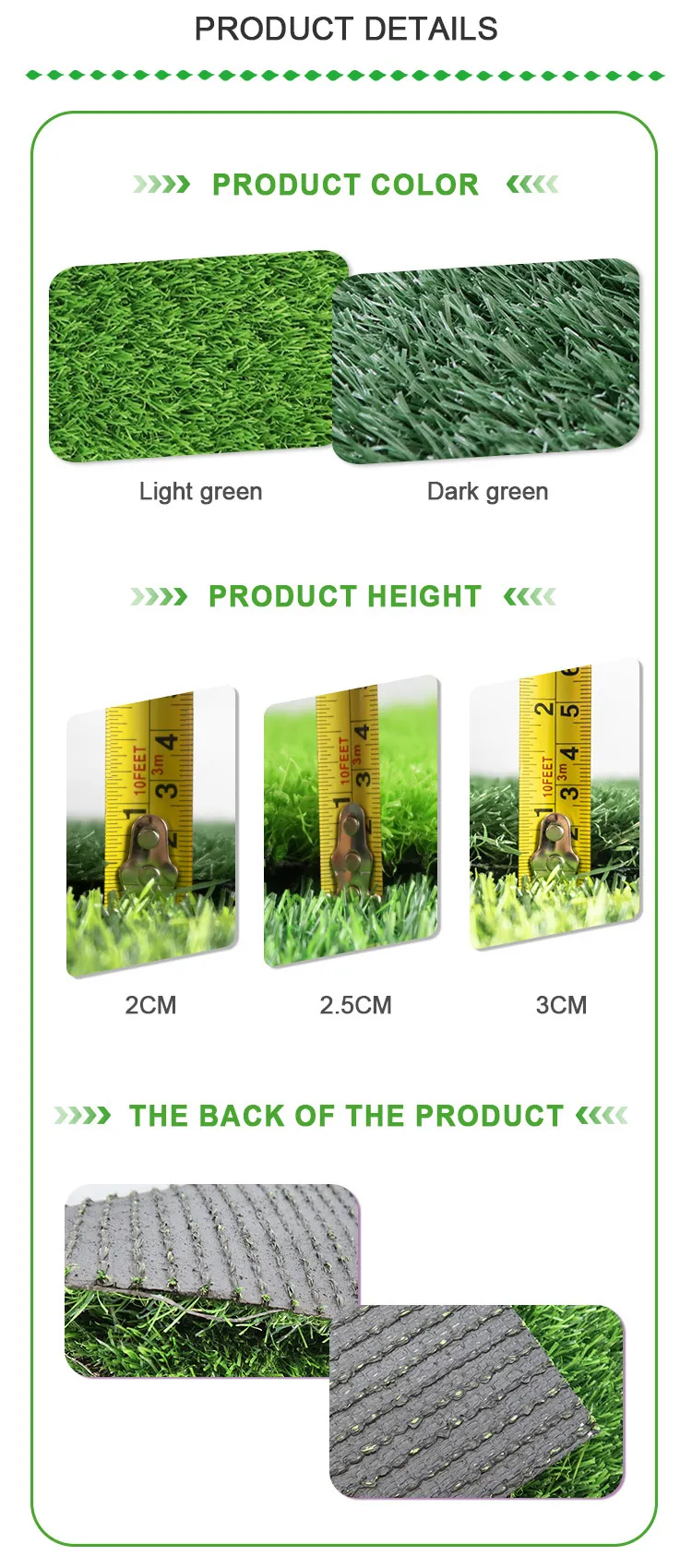
- Afrikaans
- Arabic
- Belarusian
- Bengali
- Czech
- Danish
- Dutch
- English
- Esperanto
- Estonian
- Finnish
- French
- German
- Greek
- Hindi
- Hungarian
- Icelandic
- Indonesian
- irish
- Italian
- Japanese
- kazakh
- Rwandese
- Korean
- Kyrgyz
- Lao
- Latin
- Latvian
- Malay
- Mongolian
- Myanmar
- Norwegian
- Persian
- Polish
- Portuguese
- Romanian
- Russian
- Serbian
- Spanish
- Swedish
- Tagalog
- Tajik
- Thai
- Turkish
- Turkmen
- Ukrainian
- Urdu
- Uighur
- Uzbek
- Vietnamese
artificial turf cost per m2
Dec . 19, 2024 23:20 Back to list
Understanding the Cost of Artificial Turf per Square Meter
Artificial turf has become an increasingly popular alternative to natural grass in residential, commercial, and recreational settings. Known for its durability, low maintenance, and year-round green appearance, synthetic grass is used in various applications, from athletic fields to home lawns. However, one crucial aspect that potential buyers must consider is the cost of artificial turf per square meter. This article delves into the factors that influence these costs, the benefits of investing in artificial turf, and some practical considerations for homeowners and businesses.
Factors Influencing the Cost of Artificial Turf
1. Type of Turf The market offers a variety of artificial turf options, each with distinct features and price points. For instance, products designed for sports fields typically have a different makeup compared to residential lawn turf. Sports turf is often denser and engineered to withstand high traffic, which can drive up costs. Conversely, landscaping turf tends to be less expensive, offering a more aesthetically pleasing option for lawns and gardens.
2. Quality of Materials The materials used in the production of artificial turf also significantly impact its price. Higher-quality turf made from nylon or polyethylene will generally cost more than that made from lower-grade materials. Investing in quality turf pays off in the long run, as it can endure wear and tear, UV exposure, and harsh weather conditions better than cheaper alternatives.
3. Installation Costs While the price per square meter of the turf itself is a critical component, installation costs can greatly affect the overall expenditure. Professional installation is recommended to achieve optimal results. Labor costs vary based on the region, the complexity of the installation, and any additional groundwork that may be required. Some homeowners might consider a DIY approach to save on labor, but proper installation is key to the longevity and appearance of the turf.
4. Additional Features Some artificial turf systems are designed with additional features such as drainage systems, infill materials, and enhanced shock absorption. These extras can increase the overall cost per square meter. Depending on the intended use—whether for a pet area, playground, or sports field—investing in added features can enhance functionality and performance.
Benefits of Artificial Turf
Despite the upfront costs associated with purchasing and installing artificial turf, many benefits justify the investment
artificial turf cost per m2

- Low Maintenance Unlike natural grass, artificial turf requires very little upkeep
. There is no need for mowing, watering, or fertilizing, drastically reducing long-term maintenance costs and labor.- Durability Synthetic grass can withstand harsh weather conditions and heavy foot traffic, making it suitable for various applications. Its longevity can exceed 15 years, making it a cost-effective choice over time.
- Environmental Benefits Choosing artificial turf can contribute to water conservation, as it eliminates the need for irrigation. This factor is especially vital in regions experiencing water shortages or droughts.
- Aesthetic Appeal Artificial turf maintains its vibrant color and lush appearance year-round. It provides a beautiful, consistent look that can enhance the overall aesthetics of a property.
Practical Considerations
When considering artificial turf, it's essential to factor in not only the cost per square meter but also the overall project budget, including installation and any required preparation of the area. Homeowners should conduct thorough research, comparing different products and installations, and check for warranties offered by manufacturers.
Furthermore, it’s wise to consult with professionals to assess the specific needs of a project—taking into account the type of use, expected foot traffic, and other factors unique to the area.
Conclusion
In summary, the cost of artificial turf per square meter varies based on multiple factors such as the type of turf, quality of materials, installation expenses, and additional features. While the initial investment may be higher than that of natural grass, the long-term benefits of durability, low maintenance, and environmental sustainability make artificial turf an appealing choice for many. As you weigh your options, conduct comprehensive research and consult with experts to ensure you make the most informed decision for your specific needs. Investing in artificial turf can provide lasting enjoyment and enhance the functionality of any outdoor space, transforming it into an attractive and practical area for all to enjoy.
-
The Benefits of Artificial Turf for Indoors
NewsJul.15,2025
-
How Artificial Grass Suppliers Ensure Quality Products
NewsJul.15,2025
-
Artificial Grass and Pets: A Space for Relaxation
NewsJul.08,2025
-
Balcony & Outdoor Decoration with Artificial Grass
NewsJul.08,2025
-
Best Indoor Artificial Grass for Home
NewsJul.07,2025
-
Best Pet Turf for Dogs: Safe & Durable Artificial Grass Options
NewsJul.07,2025
Products categories









